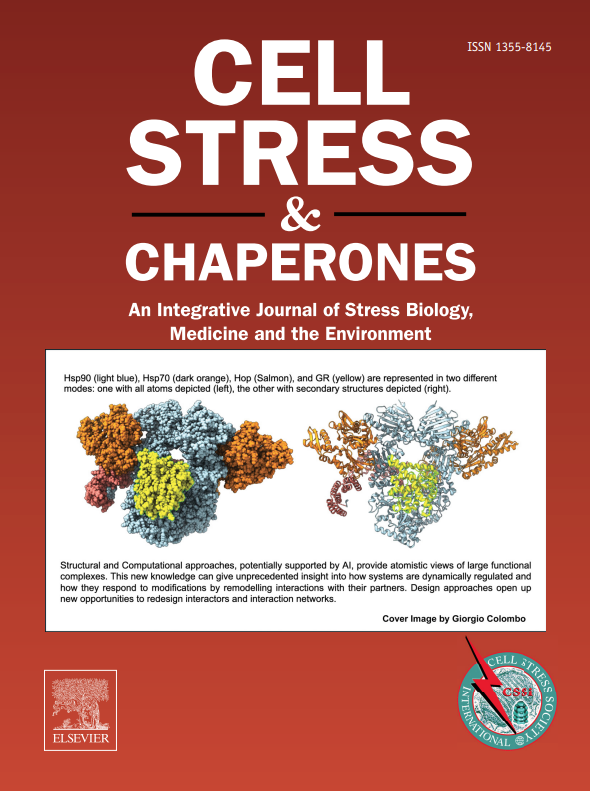The expression of DAMP proteins HSP70 and cancer-testis antigen SPAG9 in peripheral blood of patients with HCC and lung cancer
IF 3.3
3区 生物学
Q3 CELL BIOLOGY
引用次数: 0
Abstract
There are different views of how the immune system participates in the reaction to cancer. Here, we evaluated expression of DAMP proteins HSP70 and cancer-testis antigen SPAG9 in patients with hepatocellular carcinoma (HCC) and lung cancer to explore tumor immunity. Our analysis showed that levels of HSP70 and SPAG9 antibody were significantly higher in the serum of lung cancer and HCC patients than in the serum of healthy subjects (P < 0.001), but there were no differences in levels of HSP70 antibody in patients and controls. Levels of serum SPAG9 antibody in newly diagnosed lung cancer patients were significantly higher than in treated lung cancer patients (P < 0.05), but there were no differences in levels of HSP70 or HSP70 antibody. Levels of serum HSP70 and SPAG9 antibody, but not HSP70 antibody, were also higher in hepatitis/cirrhosis patients than in healthy subjects (P = 0.005, P < 0.001). Levels of serum SPAG9 antibody were significantly higher in HCC patients than in hepatitis/cirrhosis patients, but there were no differences in HSP70 or HSP70 antibody levels. Finally, levels of serum HSP70 and SPAG9 antibody were significantly higher in HCC patients than in lung cancer patients (P < 0.05, P < 0.001). These results indicate that cancer-testis antigen SPAG9 induces a strong humoral immune response in cancer patients but HSP70 does not. These results show that SPAG9 has potential as a tumor-specific biomarker.
HCC 和肺癌患者外周血中 DAMP 蛋白 HSP70 和癌睾抗原 SPAG9 的表达。
关于免疫系统如何参与对癌症的反应,存在不同的观点。在此,我们评估了肝细胞癌(HCC)和肺癌患者体内 DAMP 蛋白 HSP70 和癌睾抗原 SPAG9 的表达,以探讨肿瘤免疫。我们的分析表明,肺癌和 HCC 患者血清中的 HSP70 和 SPAG9 抗体水平明显高于健康人血清中的水平(P
本文章由计算机程序翻译,如有差异,请以英文原文为准。
求助全文
约1分钟内获得全文
求助全文
来源期刊

Cell Stress & Chaperones
生物-细胞生物学
CiteScore
7.60
自引率
2.60%
发文量
59
审稿时长
6-12 weeks
期刊介绍:
Cell Stress and Chaperones is an integrative journal that bridges the gap between laboratory model systems and natural populations. The journal captures the eclectic spirit of the cellular stress response field in a single, concentrated source of current information. Major emphasis is placed on the effects of climate change on individual species in the natural environment and their capacity to adapt. This emphasis expands our focus on stress biology and medicine by linking climate change effects to research on cellular stress responses of animals, micro-organisms and plants.
 求助内容:
求助内容: 应助结果提醒方式:
应助结果提醒方式:


